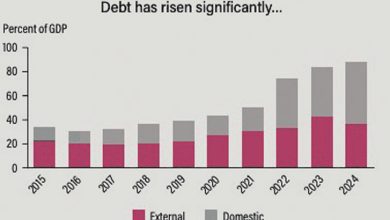RBM forex injection impact yet to be felt
Financial Market Dealers Association (Fimda) and manufacturing firms say they are yet to feel the impact of the $150 million (about K263.3 billion) foreign exchange injection into the market in the first quarter (Q1) of this year.
Their reaction follows what the Reserve Bank of Malawi (RBM) said in the second Monetary Policy Report of 2025 that the central bank’s forex sales into the market in Q1 moderated foreign exchange pressure on the market.
Reads the RBM report in part: “The RBM has continued to support market stability, with official foreign exchange sales to the market reaching $150.4 million in 2025 quarter one, significantly up from $76.4 million [about K133.7 billion] in the preceding quarter.

The RBM said monetary policy efforts should be complemented by stronger fiscal coordination to address the growing deficit alongside focused supply-side measures in food production, storage and distribution.
But Fimda president Leslie Fatchi said in an interview on Tuesday that while from the banking perspective, RBM has indeed stepped up forex supply interventions, especially on critical commodities he is not sure if this has produced significant impact to the economy.
He said: “From the banking perspective, we have noted that RBM has been supportive to ensure forex supply for priority commodities such as fuel and fertilisers, among others.
“But as you know, the economy is broad, so we are not sure the impact as of now and how the production sectors assess the situation.”
In a separate interview on Tuesday, Manufacturers Association of Malawi chairperson Gloria Zimba said the situation has not significantly changed because forex is being rationed, which is still limiting production and delaying payment to suppliers.
“There might be a slight improvement [in supply], but we are still waiting in long queues in banks to get forex which is also being rationed,” she said.
Zimba, who is Castel Malawi human resources and corporate affairs director, said companies are delaying payments to their suppliers and also producing below capacity because of forex rationing.
She said most of the raw materials for manufacturing companies apart from grain, are imported.
“Even the bottling companies, they have to import the glass bottles because such bottles are not produced locally,” said Zimba.
On his part, Crossborder Traders Association of Malawi president Steven Yohane said they are yet to observe significant improvements, adding that they are planning to engage RBM because in most cases, traders are not prioritised on forex allocation.
According to RBM’s March Monthly Economic Review, the gross official reserves stood at $536 million (about K939 billion), an equivalent of 2.1 months of import cover in March from $569.5 million (about K997 billion), representing 2.3 months of import cover in February.
Malawi imports goods worth $3 billion (about K5.2 trillion) against exports at $1 billion (about K1.7 trillion), creating a $2 billion (about K3.5 trillion) trade deficit.
RBM has been implementing various forex regulations reforms in the past months meant to channel foreign exchange into the formal market.





